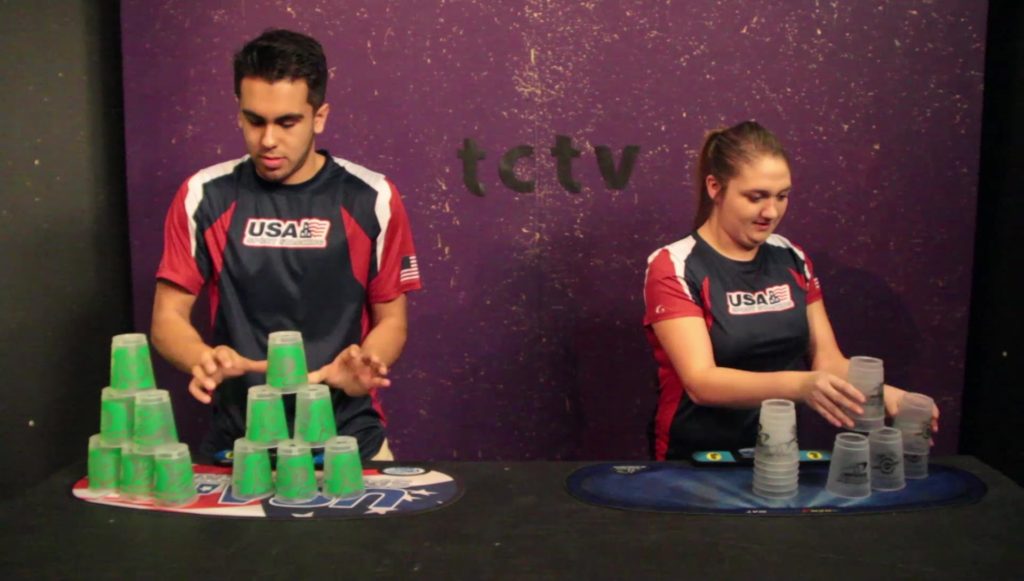Competing in a sport where hundreds of rankings are separated by milliseconds, Jenna Griffith and Anthony Michilizzi know the literal truth of every second counting, whether it’s beneficial or detrimental. Joining Team USA the previous year in 2015, both Griffith and Michilizzi have been speed stacking for years, with Griffith competing for three years and Michilizzi competing for five.
“We’ve competed at the World Championship last year,” said Michilizzi, “There’s Regionals, Nationals, Junior Olympics, and World Championships, and we actually went to all four.”
Working to build a seemingly tower of cups in a specific sequence by using numerous algorithms, sport stacking is an individual or team sport in which Griffith and Michilizzi compete for their fastest time in an event.
“[We’d definitely continue sport stacking],” said Griffith, “I do it for the friendships because we’ve made a lot of friends through it, [all throughout] the states and [other countries]. Going off to college next year it’s going to be hard to stick with it, but I definitely want to stick with it.”
Highly ranked both in the state of Texas as well as nationally, Griffith and Michilizzi have found ways to continue the sport with a purpose, inspired by Jenna Griffith’s younger brother Trey Griffith. Diagnosed with PDD-NOS (high-functioning autism) at three years old, Trey soon found speed stacking as a way to use his advanced skills with numbers and patterns, becoming ranked throughout the state of Texas as the third fastest speed stacker. Having a strong relationship between all three of them, the sport has provided a system for each one, motivating Jenna and Anthony to continue competing.
“Sport stacking has been a way for him to get friends,” said Michilizzi, “Now that he has sport stacking he’s kind of famous in a way, and so it’s really cool to be able to see him interacting with other kids his age and have something in common with them…[that’s why we sport stack]; we do it for him.”

